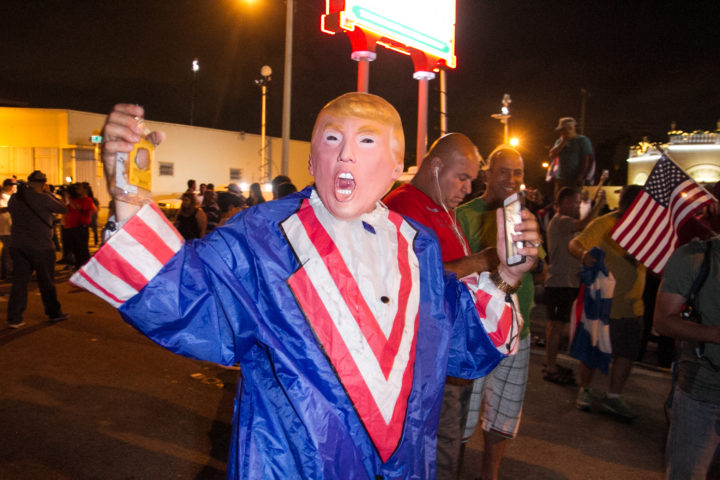
Cuba should prepare for the Trump hard line
After saying he was generally supportive of Barack Obama’s Cuba policy during the Republican primaries, by the time of the US election Donald Trump had changed his tune and promised he would roll back the Obama-era opening to the island.
In the next few weeks, the White House is expected to announce its post-Obama Cuba policy. We will see which one of Trump’s views prevails. There is an accepted — though false — wisdom that Trump owes his election victory in Florida to his shift to the hard line. Thanks to this, we fear it is still likely he will turn back the clock on diplomatic relations, jeopardising the US investment and trade that emerged under the Obama-era changes.
From April 2009, Obama began picking away at the US embargo by relaxing restrictions on travel and remittances to the island by Cuban Americans. This culminated in a dramatic announcement in December 2014 that the US and Cuba would restore diplomatic relations after half a century. By the end of Obama’s term, the former Cold-War adversaries were collaborating on everything from environmental protection to port security and antiterrorism. Meanwhile, Cuba’s private sector workforce has more than quadrupled and there are pockets of commerce and investment on the island by the likes of Google, Sheraton Four Points Hotel and Airbnb.
However, much of what remains of the US embargo is still codified into law, meaning that Obama’s changes can be reversed with a stroke of Trump’s pen. The question is not whether Trump will change course on his predecessor’s Cuba strategy; it is how many of Obama’s steps he will try to reverse.
Florida senator Marco Rubio, Miami congressman Mario Diaz Balart and other Cuban-American hardliners have said US policy should go back to shutting off commercial, economic, diplomatic and travel relations with Cuba. However, the knot of familial, commercial, educational, cultural, scientific and security ties that has formed over the past few years will make it difficult to return to the George W Bush-era freeze.
This time, Florida’s politics provide no clear indicator. Despite the spin by advocates of the embargo, Trump’s shift on Cuba policy did not yield significant political dividends in the state. In prior years, Republican presidential candidates would win the Cuban vote by over 50 points by promising to get tough on the Castros. Yet in 2016, Trump edged out Hillary Clinton in South Florida’s Cuban neighbourhoods by an anaemic two points. Meanwhile, both nationally and in Florida, Obama’s Cuba policies remain popular. According to a December 2016 Pew survey, 75 per cent of US adults are in favour of re-establishing diplomatic relations, and nearly two-thirds of Cuban-Americans in Miami favour ending the embargo, according to a study by Florida International University.
Still, for many hardliners, nothing short of an isolationist, pro-sanctions policy is permissible. Their logic stems from a longstanding desire to starve the Cuban government of revenue and isolate the Castros. But in tandem with a series of modest economic reforms by Raúl Castro, Obama’s policy helped fuel the single largest growth in the island’s private sector since 1959. Today, there are more than 500,000 licensed cuentapropistas (entrepreneurs) and hundreds of thousands more working independently, providing everything from computer repairs to event planning, not to mention the more than 4,000 Cuban bed and breakfasts listed on Airbnb. Their earnings have made them more independent and helped them to offer better lives to their families. US travellers to the island have played no small part in this, with more than 13,000 Americans having booked a casa particular (privately owned home).
At the same time, entrepreneurship and travel have generated deep ties between Cuban-Americans in Florida and their counterparts across the Florida Straits, reuniting many families. Many younger Cuban-Americans have reconnected with their roots by visiting the island and are now working on joint ventures with their peers.
During the Bush era, the so-called party of less government imposed draconian restrictions whereby the federal government defined for Cuban-Americans who their family members were, how often they could see them and the degree to which they could give them help. Should Trump follow the lead of Cuban-American hardliners, not only would he be violating Florida’s political logic, he would also risk facing a severe political backlash.
Worse, the shift would weaken civil society on the island, threaten the survival of a small but growing private sector and, ironically, strengthen the hand of Cuba’s more conservative elements at a time when the country is about to undergo a generational transition from Castro, who has promised to step down in January 2018.
If a return to failed Bush policies is how Trump’s advisers define “a better deal”, the president would be wise to find new Cuban friends.
From the Financial Times

